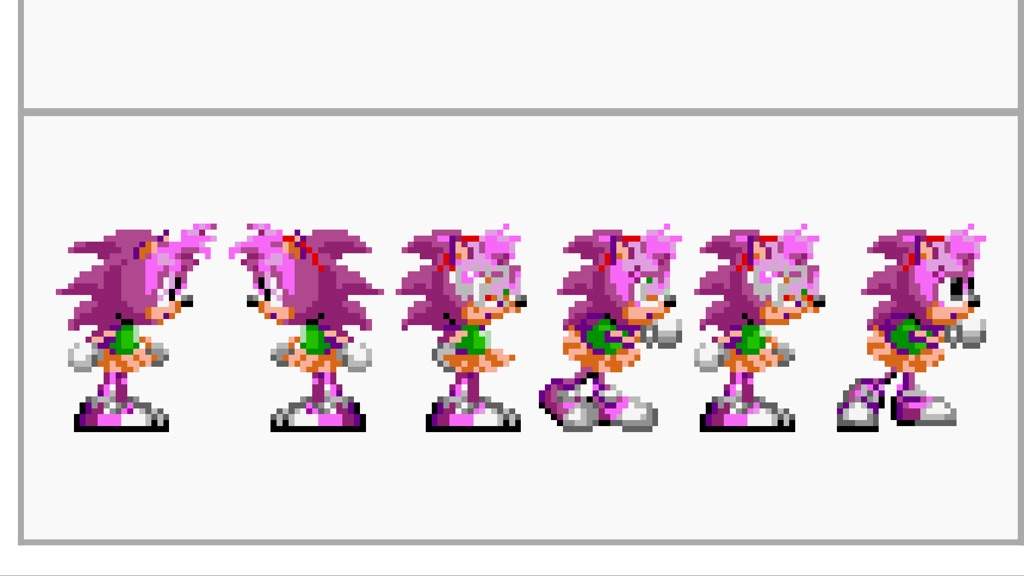
Sonic CD is different because it’s not a run fast hedgehog game.

I’ve never really played any serious iPhone games and I got the controls down simply. The iPad was kinda weird, but that’s just the unwieldy largeness of the iPad. Do they get better, and does the time travel have a point other then more rings? The whole preset/past/future thing is kinda neat seeing the same level alter, but the level design seems kinda jumbled and restrictive for a hedgehog that wants to run fast. Granted it was only the first stage on the first zone, and I believe the music was the American soundtrack cause it sounded a bit off.
FINAL FEVER SONIC CD SPRITES TRIAL
Since this has literally been ported to everything at this point I should give it a go finally.Įdit: just played the trial version on 360, and I’m sorry to say I’m not that impressed.

I’ve always wanted to play Sonic CD as a kid but never had the money to get a Sega CD, or saw a point for just 1 game I would ever want on that system. Also according to Nishimura, the Metal Sonic projections in the past zones are a leftover from a scrapped idea in which the animals would attack Sonic, due to them mistakenly thinking he was Metal Sonic.How are the contorts on an iPad/iPhone? I’ve played other games that have that touch-dpad and they have been pretty.According to Masato Nishimura, Wacky Workbench was originally titled "Crazy Toy Box".Finally, playing with a second controller would spawn a second, playable Sonic. Past themes were also seemingly going to use clearer Red Book audio like the Present and Future themes, instead of the Sega CD's own PCM audio chip. There were two monitors that were cut from the final version: a Blue Ring monitor which basically acts as invincibility (in later builds, it acted like a triple-layered shield) and a Clock monitor that would stop time. Every other round, including the elusive "Round 2" (notably this is the only known prototype to reference the level, meaning it was scrapped very early on), is listed in the Time Attack menu but is not present on the disc. Only Palmtree Panic Zones 1 and 2 are playable, then known as "Salad Plain" (possibly hinting that the rest of the titles would have used food puns rather than Alliterative Names). On October 26, 2019, a prototype of the game shown off at a Sega World event in 1992 was dumped online.This concept eventually became the basis for the final boss of Sonic Mania, the Phantom Egg. One of the pieces of concept art for the final boss shows Eggman in a mech suit, though with the panels from the final design still present.began work on a port for the Nintendo DS, but the project was abandoned once Whitehead's pitch was accepted. While Whitehead was still pitching the game's digital port, Simon "Stealth" Thomley note Known for Sonic Megamix and his famous Sonic 1 GBA proof of concept.There was some brief consideration for R2 to be revived for the remake, but the lack of surviving data for the zone resulted in those plans getting scrapped and for Taxman to create a new level inspired by R2 (Desert Dazzle) to fill in the void instead, which would also be scrapped, as mentioned below.
FINAL FEVER SONIC CD SPRITES PC
However, due to dissatisfaction by the team and it not meeting quality standards, it was cut very early in development with the only traces of the zone left being Dummied Out leftover files discovered when going through the games files on a PC (under the name R2, or Round 2), early concept art ◊, leftover enemy and boss sprites ◊, its appearance in the ending sequence ◊ and its present theme, which would be recycled as the default track in the "D.A Garden" menu in the Japanese/European release (the American release uses an instrumental version of Sonic Boom instead).




 0 kommentar(er)
0 kommentar(er)
